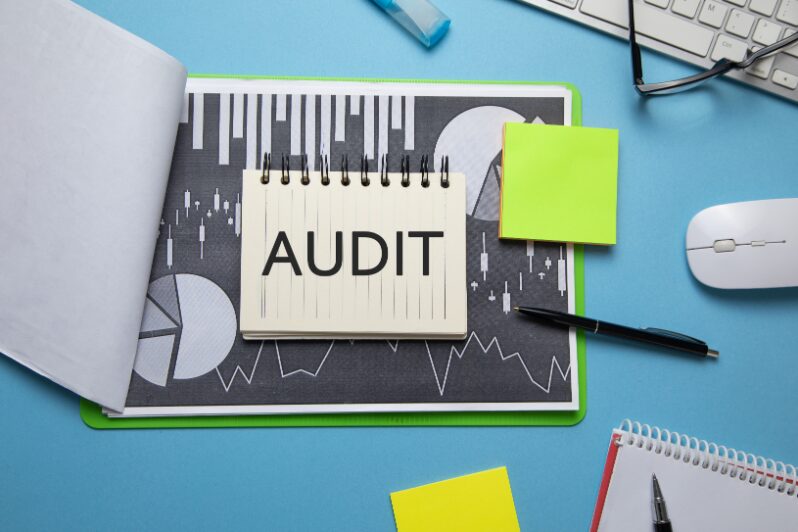This article explores the key differences between internal and external audits, highlights the latest legal requirements in the UAE, and clarifies their role in improving corporate governance, financial integrity, and compliance. Whether you operate a startup, small business, or a multinational corporation, both internal and external audits are essential for risk mitigation, fraud prevention, and stakeholder confidence.
What is Internal Audit?
Internal auditing is an independent and objective activity designed to improve an organization’s operations. According to global standards:
Internal auditing provides assurance and consulting services aimed at adding value and enhancing the effectiveness of risk management, internal controls, and corporate governance.
In the UAE, internal auditing is typically performed by the company’s internal team or audit committee. It involves the regular evaluation of accounting processes, risk management systems, and compliance procedures to ensure alignment with UAE laws and International Financial Reporting Standards (IFRS).
What is External Audit?
External auditing is a legally required, independent assessment of a company’s financial statements conducted by a licensed external audit firm in the UAE.
As per Article 27 of Federal Law No. 32 of 2021, it is mandatory for all public joint-stock companies and several other company types to appoint an external auditor.
Internal vs External Auditing – Key Differences
| Aspect | Internal Audit | External Audit |
| Legal Requirement | Optional, but recommended for large organizations | Mandatory for PJSCs and others as per the UAE Commercial Companies Law |
| Appointed By | Management or Audit Committee | General Assembly of Shareholders |
| Objective | Improve operations, risk management, and compliance | Verify the fairness of financial statements |
| Reporting To | Senior management and internal audit committee | General Assembly and regulatory authorities |
| Scope of Work | Financial and non-financial operations (e.g., HR, IT, supply chains) | Financial statements and supporting documents |
| Independence | Internal function, reports within the organization | Fully independent from company management |
| Methodology | Risk-based (focused on operational/business risks) | Risk-based (focused on material misstatements in financial data) |
| Standards | International Internal Auditing Standards | IFRS, ISA (International Standards on Auditing) |
Similarities Between Internal and External Auditing
Despite their differences, internal and external auditors in the UAE share certain responsibilities:
- Testing Procedures: Both conduct detailed reviews and sampling of business transactions.
- Review of Internal Controls: Both assess the effectiveness of the organization’s control systems.
- Professional Standards: Both adhere to globally accepted audit practices and ethics.
- Audit Reports: Both provide formal reports outlining findings, risks, and recommendations.
Legal Requirements for Appointing an External Auditor in the UAE
To be eligible for appointment, an external auditor in the UAE must:
- Be a licensed and registered auditor with the UAE Ministry of Economy.
- Have no financial or familial ties with the company.
- Not serve for more than five consecutive years (for PJSCs).
- Comply fully with IFRS and international audit standards.
These requirements help ensure the independence, objectivity, and transparency of external auditing procedures across the UAE.
Why Choose Farahat & Co. for Auditing in the UAE?
- Fully licensed audit firm in the UAE.
- Decades of experience with UAE Commercial Companies Law, IFRS, and UAE VAT Law.
- Presence in Dubai, Abu Dhabi, and Sharjah.
- Multilingual team of certified auditors and accountants.
- Trusted by government entities, corporations, and SMEs.
The Role of Farahat & Co. in UAE Auditing Services
At Farahat & Co., we offer comprehensive audit and accounting services in Dubai, Abu Dhabi, and Sharjah, serving companies of all sizes across the UAE.
Our services include:
- Internal audit services tailored to enhance operational efficiency.
- External statutory audits to ensure regulatory compliance and financial transparency.
- Court-appointed forensic accounting to represent clients in legal disputes.
- VAT audit services in the UAE are in line with Federal Tax Authority requirements.
- Expert accounting reviews for banks, investors, and regulatory bodies.
Our certified auditors provide objective, independent assessments with the highest level of professional integrity.
Seek the Expert Services of Top Audit Firms in the UAE
Both internal and external audits are essential to achieving transparency, risk mitigation, and compliance with UAE laws.
Organizations operating in the UAE must prioritize both to meet the requirements of corporate governance frameworks and financial regulations. At Farahat & Co., we provide premier auditing services by the latest UAE laws. Contact us today, and we shall be glad to assist you.

